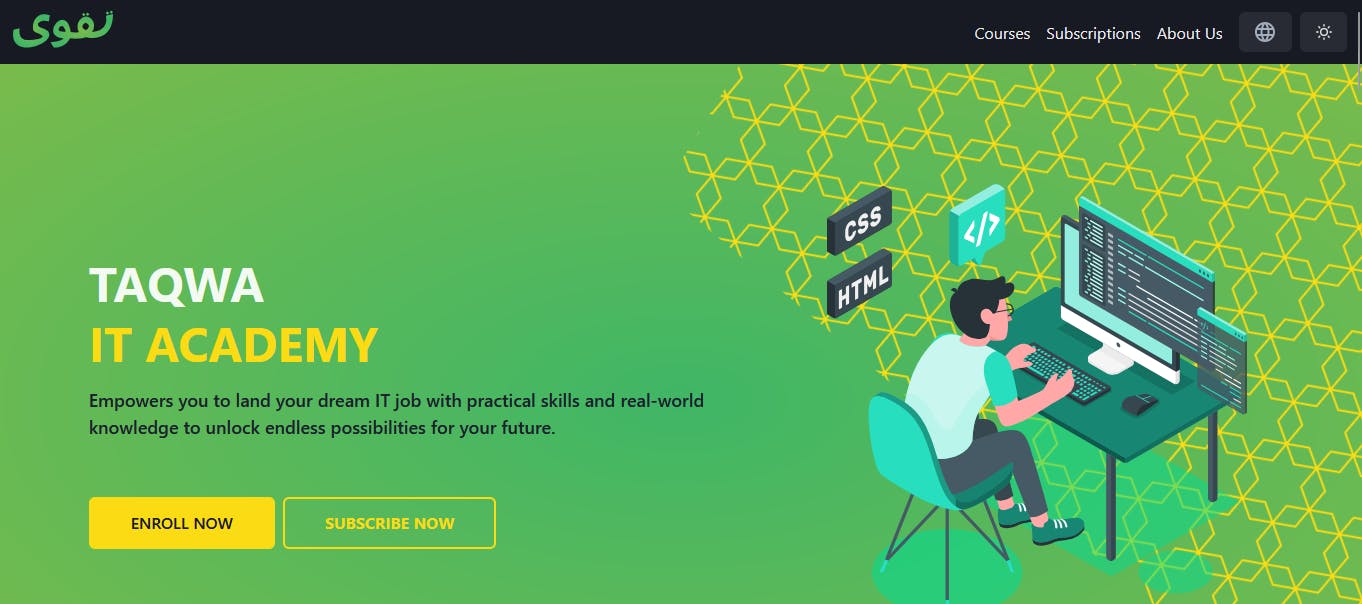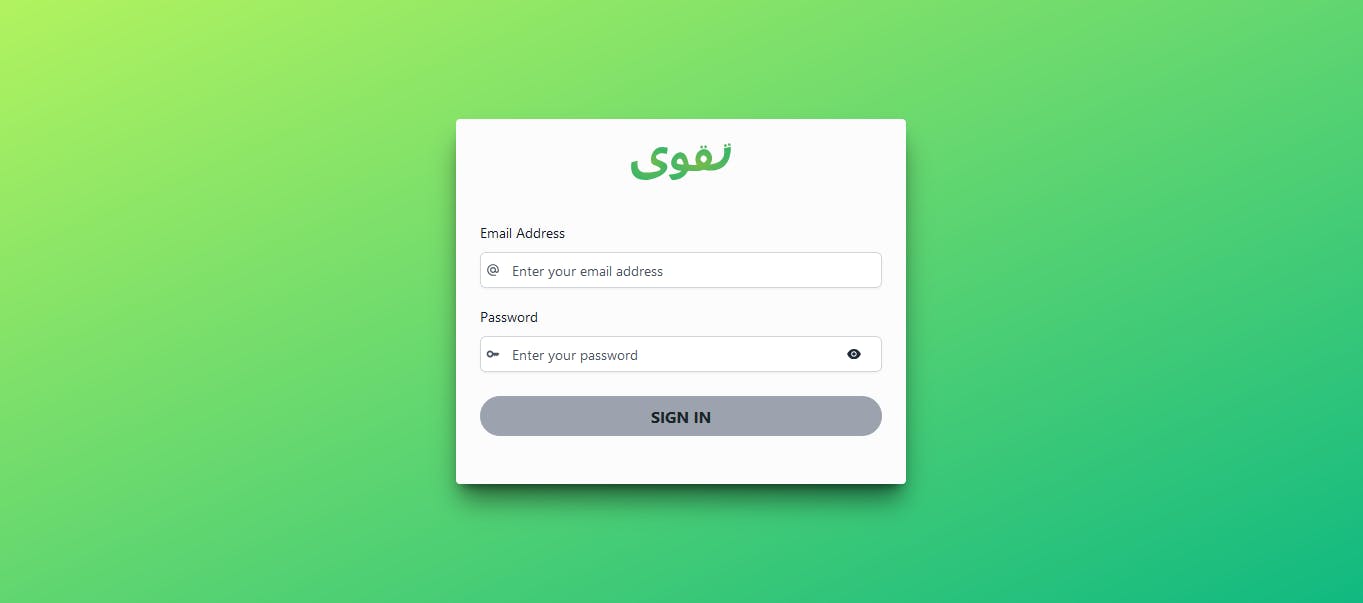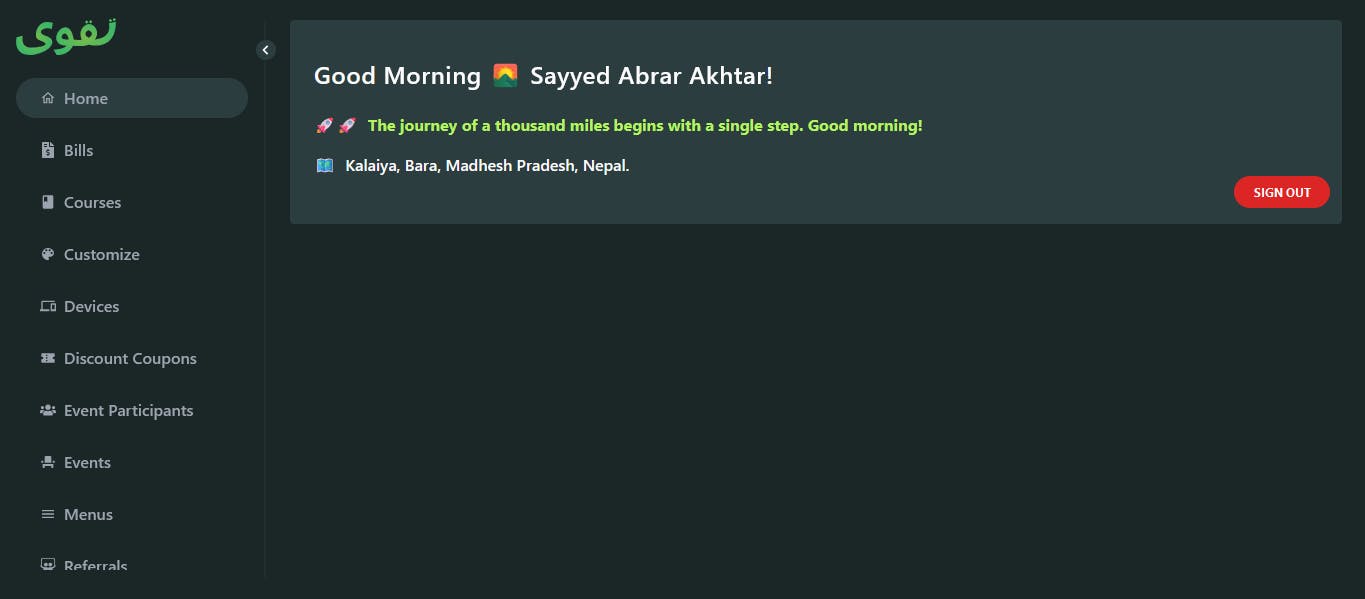Taqwa IT Academy Website
Project Overview: Taqwa IT Academy
Taqwa IT Academy is an innovative educational platform designed to offer a comprehensive range of IT courses and resources. The project leverages cutting-edge technologies to provide a seamless and secure user experience. Below is an in-depth look at the key components and technologies used in the development of this platform.

Frontend Development
Technology: Next.js
- Framework: Next.js is chosen for its robust features in server-side rendering (SSR) and static site generation (SSG), enhancing the performance and SEO of the Taqwa IT Academy platform.
- Internationalization (i18n): Implemented using the next-i18next library, this feature allows the platform to support multiple languages, catering to a global audience. It includes translations for various languages and locale-based content adjustments.
- Analytics Integration:RudderStack: Used for collecting and managing event data. RudderStack provides a unified interface for tracking user interactions and sends data to various analytics and marketing tools.Google Analytics: Integrated for comprehensive tracking of user behavior, page views, and engagement metrics. This allows for detailed insights into user activities and platform performance.
Backend Development
Technology: Node.js with Express and Mongoose
- Server Framework: Express.js provides a flexible and minimalistic framework for handling HTTP requests and building RESTful APIs.
- Database: Mongoose is used as an ODM (Object Data Modeling) library for MongoDB, facilitating schema definition, data validation, and interactions with the database.
- API Development: RESTful APIs are designed to handle user management, course information, and other platform functionalities. Secure endpoints ensure data integrity and privacy.

Security Measures
- XSS Protection: To safeguard against Cross-Site Scripting (XSS) attacks, the platform employs various security measures including input validation, sanitization, and the use of libraries like helmet to set HTTP headers that protect against XSS.
- Rate Limiting: Implemented to prevent abuse of the platform’s APIs. Tools like express-rate-limit are used to limit the number of requests from a single IP address, protecting against brute-force attacks and ensuring fair usage.
Notification System
Technology: Slack Integration
- Notifications: Utilizes Slack for real-time notifications and alerts. This includes updates on user activities, system errors, or administrative messages, ensuring that the team stays informed and can act promptly on critical issues.


Content Management System (CMS)
Technology: Next.js
- CMS Features: A custom CMS built with Next.js enables easy content creation, editing, and management. This CMS allows administrators to manage course content, blog posts, and other resources directly from the platform's interface.
- Flexibility: The CMS is designed to be user-friendly, providing a seamless experience for managing content and making updates without needing extensive technical knowledge.
Project Goals and Benefits
- Performance and Scalability: By using Next.js for the frontend and a robust backend with Node.js and Express, the platform ensures fast load times and scalability to handle growing user bases.
- Global Reach: Internationalization supports a diverse audience, breaking language barriers and making the platform accessible to users worldwide.
- Enhanced Security: Security features protect both user data and system integrity, creating a safe and reliable environment.
- Real-time Insights: Analytics integration provides actionable insights into user behavior and platform performance, helping to continuously improve the user experience.
- Efficient Management: The custom CMS simplifies content management, enabling the team to keep the platform updated and relevant with minimal effort.
Conclusion
The Taqwa IT Academy project combines modern technologies and best practices to deliver a powerful educational platform. With a strong focus on user experience, security, and internationalization, the platform is well-equipped to provide high-quality IT education to a global audience while maintaining a high level of performance and security.